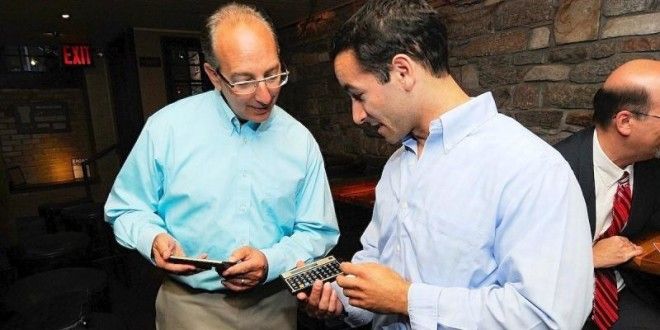There you are, minding your own business, when you catch a snippet of someone else's money conversation — and what they say blows your mind.
That person is taking out a loan on their nest egg to buy what?!
Which got us thinking: If we're shaking our heads in disbelief at one overheard tale, can you imagine what financial pros must hear — every day?
Well, we decided to find out.
So we tapped financial planners across the country to share some of the most head-scratching one-liners they've heard clients say about their nest egg plans.
From investing in swampland to confusion over simple math, their responses ranged from the comical to the unbelievable to the downright heartbreaking.
Some were just money misconceptions that needed to be changed. Others were mistakes that needed course correction. And more than a few involved being dissuaded — or not — from investing in the "next big thing."
One common thread? Nearly all of them provide a cautionary tale on how not to approach your golden years.

Infomercials are not the answer.
"I'm investing my retirement money in infomercials.""I had a client in the '90s who had $500,000 saved for retirement, in addition to her husband's Social Security and a pension. She was concerned about the amount not being enough, although I'd assured her the money was in wise, safe investments.
She asked for help divesting the entire amount so she could invest in a company that produced infomercials. I listened to the proposition, which promised the return in 60 days — and calculated the annualized return at 180%.
Obviously, I advised against this investment.
I proposed alternatives in order to dissuade her from taking part in the investment: doing further research, starting with a smaller initial investment, or even finding legitimate investments similar to the proposal.
But she was a late-night TV aficionado and persisted.
Once she sent the money to the 'infomercial producers,' they immediately lost touch. She was able to trace the money to a source overseas, but in the end she lost everything — and owed taxes because she'd withdrawn the cash from her IRAs."
— Cory Schmelzer, CFP® and founder of San Diego Wealth Management, San Diego

You can't guess how long you're going to live.
"The men in my family don't make it to retirement, so I don't worry about saving.""This came from a client whose father, grandfather and three uncles all died before they retired. Some people are too quick to rationalize away the hard work involved in saving for retirement by assuming that they won't get there anyway.
Problem solved — unless they live a long life!
I told him that just because [members of] his family died early doesn't mean he would too. Even if you have the same conditions — whether physical, occupational or environmental — medical advances may keep you healthier much longer.
I did get him to agree that hoping he died young was not a practical solution to a financial problem. While I don't think he was completely won over, he did increase his 401(k) contributions — and decided not to buy the boat he couldn't afford."
— Les Szarka, CFP® and CEO at Szarka Financial Planning & Investments, Cleveland, Ohio

Telling someone not to participate in their company's 401(k) is terrible advice.
"I was told not to put money in my company's 401(k).""My client's former adviser told her not to participate in her employer's 401(k) due to its lack of investment choices. That was many years ago, so she missed out on the match and the possible returns, plus she did not save in any other retirement account during those years. By not encouraging the client to participate — and then not suggesting she make automated contributions into an IRA — the former adviser caused my client to miss out on several years of saving and investing for retirement.
At any given point a 401(k) may seem like it's not performing well, depending on what's happening with the markets. However, results can change from year to year, and that doesn't mean you should rule out [participating in] the program completely."
— Leisa Peterson, CFP® and founder at WealthClinic, Truckee, Calif.

Investing in a hot new startup when you're just a few years away from retirement is risky, to say the least.
"This Russian start-up is sure to yield billions!""I was recently asked by a pre-retiree about investing in a Russian food service start-up that promised to return millions — even billions. What's funny is that [getting asked about hot start-ups] isn't an uncommon question.
The clients who ask about these opportunities are typically five to 10 years away from retiring, so their appetite for risk is smaller. But they see their neighbors or friends doing it, and they're afraid of being left out.
I see these situations as an opportunity to meet with the client and remind them of their goals — and the plan we worked to put in place to achieve them. If one such client were to lose their investment, there wouldn't be much time to earn it back and still be able to retire. They would be putting their long-term goals in jeopardy."
— Jason Gentile, CFP® and senior financial adviser at Apella Capital, LLC, Glastonbury, Conn.

That's not how it works.
"Buy high, and sell low!""I was on a three-way phone call with a client of mine and his accountant. The client had a mostly stock portfolio because he had a long investing time horizon.
During the call he was told by his accountant that he should sell now that the market was down, and wait until it came back up before reinvesting.
That's the opposite of the 'buy low, sell high' mantra everyone knows from Investing 101 — and it was coming from an accountant, no less!
When I heard this, I told the client that, actually, selling an investment when it's down is guaranteeing a loss. It was the most ridiculous — and considering the source, surprising — thing I've heard over the past 22 years."
— Christopher Kimball, CFP® at Christopher V Kimball Financial Services, Lakewood, Wash.

Sometimes financial planners have to teach their clients basic math.
"I came into a quarter of a million. I'm going to give my five sons $50,000 each, and invest the rest.""After inheriting $250,000, a client of mine said, 'Doug, I want to give each of my sons $50,000 so they'll remember their grandparents — and then I want to invest the rest for my retirement.'
When I realized that math wasn't her strong point, I very politely said, 'Let's review how this will work.'
As I typed the numbers into the oversize calculator that I keep on my conference room table, I explained that if she gave her five sons each $50,000, that would equal $250,000. Then I sat quietly as she absorbed what I'd just said, and watched her smile vanish when she realized she didn't have enough money to achieve her goals.
I suspect that when she originally heard that she would receive 'a quarter of a million dollars,' she had no real concept of the magnitude of the gift, and overvalued it.
Some folks just don't think in terms of numbers, so I often have to find ways of explaining concepts to them using a vocabulary that reflects who they are."
— Doug Goldstein, CFP® and author of "Rich as a King: How the Wisdom of Chess Can Make You a Grandmaster of Investing," Miami

Golf pros are not investment experts.
"My golf pro knows about this great opportunity.""I had a small business owner client who came to me and said that his golf pro was recommending he invest in a real estate venture in Florida. I strongly advised against it.
Before he heard about this deal, we'd been working on a financial plan that included contributing to an IRA, as well as setting aside some extra money for retirement and his kids' college using stocks, bonds, some real estate and mutual funds in an allocation that would develop to meet his needs from a risk-tolerance perspective.
Unfortunately, instead of taking the advice of the professional financial adviser, he put it all into the real estate — sight unseen. It turned out to be swampland, and he lost a substantial portion of his investment."
— Keith Klein, CFP® at Turning Pointe Wealth Management, Phoenix

Even if you're excited about an investment, you don't want to put every cent of your money into it.
"I've discovered the next Tesla Motors!""I used to work at a high net worth financial planning firm as an analyst. One of my former clients and his wife were in their early 50s. He was a 'gambler' type of investor who was always trying to find the next hot stock.
In 2011 he wanted to invest in Fisker Automotive, an automaker that, at the time, was a competitor to Tesla.
The catch was that he didn't want to just invest a little money into the company — he wanted to put it all in. I tried to talk him out of it, telling him there was a good chance they would lose everything. But he didn't want to hear it.
After spending an entire day doing research on the company, I found reports that said it spent close to $900,000 to produce a single car — which it sold [to dealers] for $70,000. When I showed him this, he finally started to come to his senses.
It was a good thing, too, because Fisker filed for bankruptcy a few years thereafter — and had even been sued by Tesla for stealing its technology."
— Jon Dulin, former financial planning analyst and blogger for MoneySmartGuides, Philadelphia

